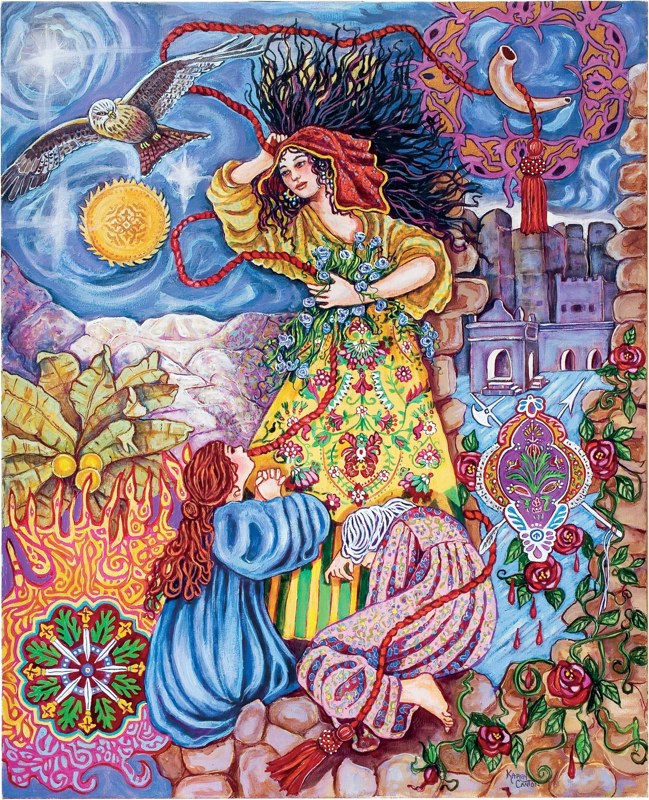Freckles and Short-Shorts

She had freckles on her face. She kept standing up to tug her short-shorts down; they pinched her, she said.
She told me her name was “Josi,” without an “e.” And that she was eleven, in middle school, and that her school was “really safe — “that nothing ever happens there.”
Her long legs would make her a good tree-climber. I hope she had some trees around her home. Come to think of it, I hope she had a home.
“We’re here because my friend Pat is always telling us to come to Rahab’s Sisters,” said the woman with her. “Says it’s real nice here. She’ll get off the bus soon,” she said, pointing out the window behind her.
Ah, the bus. The bus that stops outside Saints Peter and Paul’s Episcopal Church, in this tough, red-light district part of Portland. Red lights, green lights, warm lights from the needle-exchange van, car dealer lights, bus lights, parked car lights: some with pimps in them, waiting here for “their” women.
Here: at Rahab’s Sisters, an organization named after a prostitute in Jericho who lived some 3000 year ago, who sheltered two Hebrew spies and played an essential role in helping the Israelites enter the Promised Land. Here: a hot meal every Friday night and a no-questions-asked venue for prostitutes and homeless women struggling to survive another day. Here: a safe place. For all ages.
“Are you like a volunteer?” Josi asked me.
“Kind of. I’m a minister, helping out tonight.”
“I read my Bible a lot,” Josi said. “I know all the stories.”
“You do?”
“I have four or five Bibles. I read them all the time. And I go to church,” she said.
We talked. About the Bible. About middle school. She had questions about kings. About Solomon and David. She had been reading the stories. She knew more than many adults I know.
“Pat’s not coming. Time for us to go,” said the older woman.
And with that, Josi was gone.
I said good-bye, knowing I wouldn’t see her again. I was in town for two days, helping Rahab’s Sisters celebrate their 10th anniversary. And that was two years ago—yet Josi stays with me.
I pray that she does keep reading her Bible, that she keeps going to church, that she has not been caught up in the sex trade industry. Being eleven is a vulnerable age, the age when many girls are on the bridge to physical maturity.
I hope Josi learns about women like Deborah, who instigated—and co-led—a group of 10,000 rebels to fight off the Philistine army.
I hope she learns about Judith, who stood up against the general who tried to seduce her.
I hope she learns about Susannah, who defied the two corrupt judges who attempted to rape her.
I hope Josi learns about the woman at the well—the no-holds-barred woman—the critical, skeptical, bright woman—with whom Jesus talked longer than anyone in the Bible.
Thank God for strong Bible women whose contributions last throughout the ages. Thank God for young girls and tired women who come to the right place, for the volunteers of Rahab’s Sisters who cook and listen–and for the Holy Spirit’s way of bringing us all together.
May the Table always be set and the doors wide open.
If you’d like to know more about, or contribute to, the ministry of Rahab’s Sisters, hcre’s the link: www.rahabs-sisters.org
Artwork: Rahab of Jericho, painted by Karen N. Canton for The Scarlet Cord: Conversations with God’s Chosen Women; author: Lindsay Hardin Freeman

